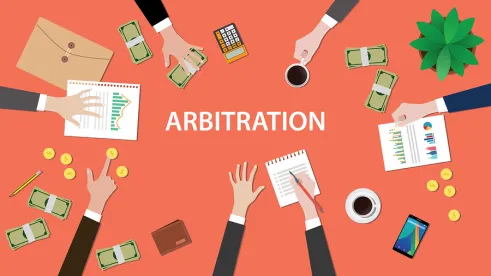A recent opinion from the Court of Appeals of Georgia illustrates that contracts entered into with an unlicensed contractor, which are often unenforceable by an unlicensed contractor under many states’ laws, likely will not defeat the Federal Arbitration Act’s (FAA) deference to arbitration as the forum for determining whether a contract is valid and enforceable.
In Jhun v. Imagine Castle, LLC, the Jhuns hired defendant Imagine Castle to perform remodeling work at their home. The contract between the parties contained a broad arbitration agreement governed by the FAA that applied to any claim or dispute between them and specified that “[a]ny questions regarding the interpretation of this arbitration provision or about the arbitrability of a dispute . . . shall be decided by the arbitrator.” Although Imagine Castle represented that it was properly licensed when the contract was executed, the Jhuns later learned that it was not. The Jhuns also discovered that Imagine Castle’s work on the project was incomplete and deficient in several ways and they refused to make further payments. Imagine Castle stopped work and the Jhuns hired another contractor to complete the project.
The Jhuns filed suit against Imagine Castle and its two principals in Georgia state court. The defendants moved to compel arbitration and stay the proceedings, and the trial court granted the motions. The Georgia Court of Appeals affirmed the lower court’s order and stayed the trial court proceedings against the other parties who were not signatories to the contract.
On appeal, the Jhuns argued that the arbitration agreement was unenforceable because Imagine Castle was not properly licensed and, under O.C.G.A. § 43-41-17(b), as a matter of public policy, contracts between an unlicensed contractor and an owner are unenforceable in law or equity by the unlicensed contractor.
The appellate court found this argument unavailing and relied, in part, on the U.S. Supreme Court’s holding in Buckeye Check Cashing v. Cardegna. In Buckeye, the Supreme Court rejected the argument that “enforcement of an otherwise valid arbitration agreement contained within an unenforceable contract[] could turn on an individual state’s law or public policy.” While true that this “rule permits a court to enforce an arbitration agreement in a contract that the arbitrator later finds to be void,” “it is equally true that [the Jhuns’] approach permits a court to deny effect to an arbitration provision in a contract that the court later finds to be perfectly enforceable.”
Moreover, the Jhun Court explained that under the FAA, when ‘“there is a specific challenge attacking the validity of an arbitration agreement, the court and not the arbitrator should decide whether the arbitration provision is enforceable.’ However, ‘a challenge to the validity of the contract as a whole, and not specifically to the arbitration clause, must go to the arbitrator.”’
The Court determined that the Jhuns failed to “raise any challenge that is specific to the arbitration provision in the contract” and that “their challenge to the arbitration agreement [wa]s part and parcel of their argument that the entire contract [wa]s unenforceable due to the defendants’ unlicensed status.” Thus, the Court affirmed the trial court’s order compelling arbitration. The Court also affirmed the order staying proceedings against the other defendants because the claims against all the defendants were “intimately related” and “[t]he power to stay proceedings is incidental to the power inherent in every court to control the disposition of the causes on its docket. . . .”
Parties to a contract should carefully read the dispute resolution provisions prior to executing any contract to ensure they are aware of how disputes will ultimately be resolved. When an agreement to arbitrate is knowingly and voluntarily made (which will be assumed as a fact by courts), most jurisdictions will defer to the parties’ agreement, and overcoming the provision will require a meritorious attack on the validity of the arbitration provision, not simply the contract as a whole. In all cases, parties are well-advised to consult with counsel to fully understand the scope of the arbitration provision and the impact arbitration may have on resolution of a future dispute.




 />i
/>i

